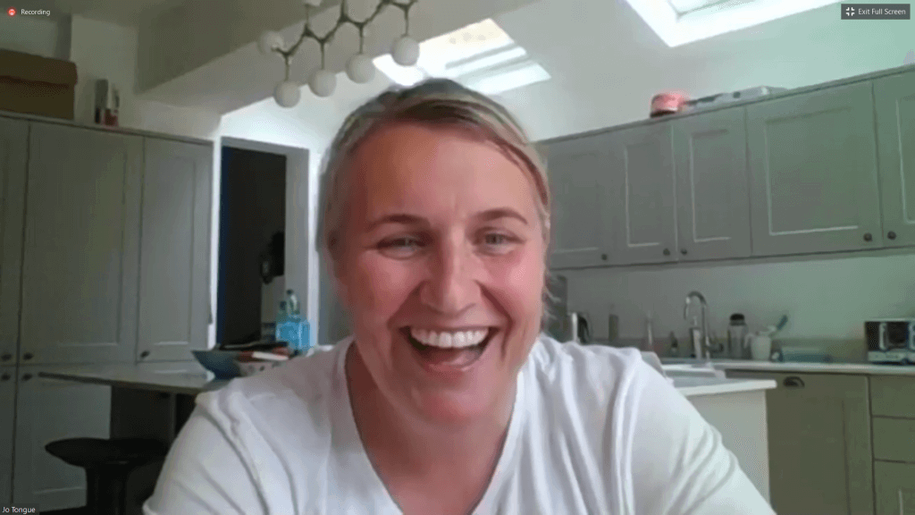News
UEFA celebrate women who choose to challenge on International Women's Day 2021
8 March 2021

Emma Hayes MBE - featured by UEFA as they shine a light on leading women in football
To mark the 2021 International Women’s Day, UEFA has launched a campaign that is shining a light on some of the many women who continue to make game-changing contributions to the development of football.
The first five highlighted read like a who's who of top women working in the football industry: Emma Hayes MBE (Chelsea WFC manager) Asisat Oshoala (Four-time African Women's Footballer of the Year), Stéphanie Frappart (first woman to referee a UEFA men's match), Lisa Alzner (UEFA Playmakers coach educator) and Anne Rei (General Secretary of the Estonian Football Association and chair of UEFA Women's Football Committee).
Here, we reproduce snippets from each of their interviews in full on uefa.com here.
Emma Hayes MBE
What is your advice for girls looking to emulate your achievements or find a career within football?
My family always encouraged me, my dad took me to football, I played with my sisters and my mum inspired me to be whatever I wanted to be. I was always encouraged, but it's so important to remember you don’t need to be perfect in everything to push yourself towards doing it. You don’t have to look at a job and think you're not good at this or you need more of that. Take risks, trust yourselves, be confident that the qualities you have as a girl or woman are needed in the game. Back yourself. It can be quite tough, you have to have the resilience and self-belief to cope, but keep pushing yourself towards whatever your dreams are.
Asisat Oshoala
Who inspired you when your parents were saying you couldn’t play?
The only person who was supportive was my grandmother. Although she's not alive today, she was the only person in my family that was there for me. When I play on the biggest stage today, I remember her and wish she was still alive to see me, but I'm pretty sure she's proud of me. I cried sometimes because I just felt like I don’t want to fail and have my parents say, 'you didn’t listen to us and this is how you end up'. It felt like a pressure to me, I felt I had to deliver.
Stéphanie Frappart
How does it feel to be seen as a leader for women in football?
I know that I am a role model. Young women are watching TV, so I know that if I am here on the field they can see that it's possible. This is the first thing that will help some young girls to start refereeing. I know that I have a role in that, but I am not pushing women too much because they will continue by themselves and they will decide if they want to be a referee or not.
Lisa Alzner
How has women's football changed since you started playing, and what still needs to happen?
For me, growing up, a professional career in football felt possible – the path is there. It is not perfect but if I was 10 years older it would have looked much more difficult. I had idols who were playing for the national teams, for example, and one of my biggest idols was Nadine Kessler, all my childhood I wanted to play like her. Women's football has taken big steps at the peak of the game, but now the development and increased awareness must take place at grassroots level. It should not be a big deal for a girl to play football, there has to be more access for all ages and all levels.
Anne Rei
How do you reflect on your path in the game?
It has been quite a ride. There is always a new challenge, because football has developed so rapidly in this time, it has grown a lot, particularly in Estonia where in the Soviet era women were not allowed to play football. As a young woman coming into football, with a background as an athletics coach, it took a little bit of time to get respect. Everybody thought, 'You're a woman, what do you know about football?', so I had to be persistent and prove that I was good enough, but with a lot of dedication, I have enjoyed the journey to where I am today.
Share this article
